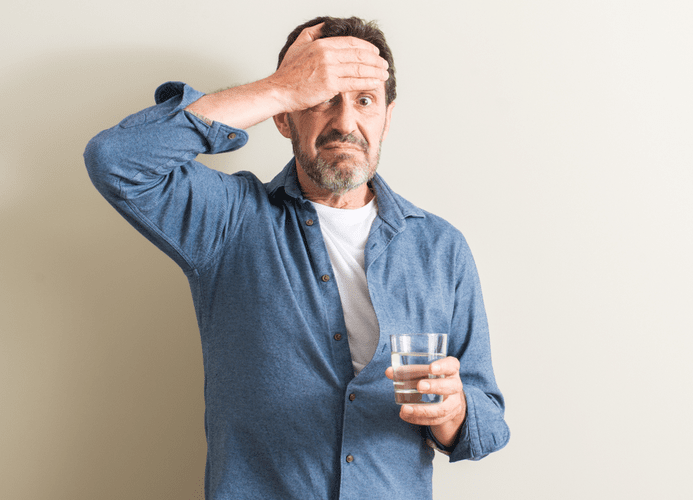Contents
If you or someone you love is struggling with hydrocodone or alcohol addiction, The Recovery Village Ridgefield is here to help. Contact us today to speak with a representative and learn more about addiction treatment programs that can work well for your situation. Also contain alcohol, which can cause someone to unknowingly mix hydrocodone with alcohol. When a person mixes alcohol with hydrocodone — whether purposely or unintentionally — they may be putting themselves in danger. Many people may be more familiar with one of hydrocodone’s brand names, such as Vicodin, Lortab, Lorcet or Norco. We can help you explore your substance abuse treatment options and get you started on your journey to sobriety and drug-free living.
If you have taken hydrocodone for a long time or at high doses, you should be weaned off hydrocodone slowly to prevent serious side effects of physical withdrawal. Opioid replacement therapy, or medical detox, can help with the physical reactions of opiate withdrawal. Hydrocodone and alcohol are both addictive drugs that when abused produce many negative and potentially life-threatening side effects. Programs specializing in these disorders provide holistic therapies instead of treating one at a time. Detox is typically not a sufficient treatment for addiction, so comprehensive substance abuse programs are necessary to prevent relapse and support long-term recovery from hydrocodone addiction and alcoholism. Overdose can occur more quickly when these two substances are combined than if one or the other is taken on its own. Check aetna substance abuse coverage.
Long-term use of a hydrocodone product that is combined with acetaminophen, such as Vicodin, can be toxic to the liver, leading to liver disease and even death. While withdrawal and tolerance are the hallmarks of dependence, their presence doesn’t necessarily indicate abuse. People who mix hydrocodone and alcohol are usually people who struggle with both alcohol and opioid dependence. In this regard, the best way to keep them safe from the deadly effects of mixing the two substances would be to help them cope with and overcome their addiction to these substances. An overdose involving both alcohol and hydrocodone may be more difficult to reverse than an overdose on either of the substances on their own.
Can You Mix Hydrocodone and Alcohol? What Happens?
Hydrocodone, a powerful opioid painkiller medication, is prescribed to treat severe pain. It is dispensed as an extended-release format, which means it can be used to control pain around the clock, and as a combination medication for immediate relief. Hydrocodone is also an antitussive medication that can be used to control cough.
But while you’re riding this high, these substances are slowly producing damage that becomes more noticeable over time. Mixing alcohol with hydrocodone is extremely dangerous because they’re both central nervous system depressants. Alone, each can how long can alcohol be detected? produce sedation and cognitive impairment, but together, their side effects are intensified to the point where they can potentially become life-threatening. Understanding why someone would want to mix hydrocodone with alcohol is extremely complex.
Why Would Someone Want to Mix Hydrocodone with Alcohol?
When you take way too much hydrocodone, your central nervous system may be depressed so much that your respiratory system becomes overwhelmed, and your breathing may come to a complete halt. Since hydrocodone is a Drug Enforcement Administration Schedule II-controlled substance, it has a high potential for abuse. Alcohol withdrawal also can become life-threatening in the case of delirium tremens which can include seizures, severe confusion, fever, agitation, and hallucinations.
- If left untreated, the side effects of mixing hydrocodone with alcohol can be deadly.
- Long-term use of a hydrocodone product that is combined with acetaminophen, such as Vicodin, can be toxic to the liver, leading to liver disease and even death.
- If you have taken hydrocodone for a long time or at high doses, you should be weaned off hydrocodone slowly to prevent serious side effects of physical withdrawal.
- Not only does hydrocodone alleviate physical discomfort, but it also stimulates the release of dopamine and the reward system to produce a sedative and euphoric high, especially when taken in high doses.
- A sense of euphoria and bliss can be felt, causing people to continue taking it even when they are not in as much pain as they were before.
If you, or a loved one, have been mixing hydrocodone with alcohol, it is extremely important that you don’t try to attempt to detox or stop taking the substances on your own. Detoxing on your own is not only extremely painful and uncomfortable, but it is dangerous and potentially life threatening. One of the biggest issues related to combining hydrocodone and alcohol is the risk of a fatal overdose. If a person drinks alcohol while also taking hydrocodone, it can increase the effects of the opioid drug and raise blood plasma levels of hydrocodone. We understand that reaching out for help with an addiction to hydrocodone and alcohol can be difficult.
People Also Read:
If a person is suffering from any kind of drug overdose, the most crucial thing to do is to call 911 and get emergency help right away. Every second that a person spends without getting help contributes to the damage their body sustains, so it is imperative to get help immediately. The long answer is that since alcohol is very similar to hydrocodone, it also slows down your physical and cognitive ability which the central nervous system considers a depressant as well. Since hydrocodone is an opioid depressant, it slows down your central nervous system and may affect your breathing and cognitive ability.
Which pain reliever is best after drinking?
Aspirin, ibuprofen (Motrin, other brands), and other nonsteroidal anti-inflammatory drugs (NSAIDs) may help with the headache and the overall achy feelings. NSAIDs, though, may irritate a stomach already irritated by alcohol. Don’t take acetaminophen (Tylenol).
The FDA has issued its strongest warning, stating that the combination of benzodiazepines and opioids can cause dramatic breathing difficulties and even death. Additionally, because both hydrocodone and alcohol are addictive when abused, using them together for long periods often leads to addiction. However, despite their dangers, people take them together for the relaxation, calmness, and euphoria they produce.
Identifying Hydrocodone Dependence
We are here to help you through every step of the process from help detoxifying to getting intense one-on-one help with inpatient addiction treatment. If you notice any of these symptoms and suspect an individual is suffering from an overdose either from mixing hydrocodone with alcohol or from taking illegal drugs, call immediately. The reason why mixing hydrocodone with alcohol is so dangerous is because both substances have very similar qualities. By mixing these two substances, you experience intense side effects that are not only serious, but potentially life threatening. Like many other opiates commonly mixed with alcohol, hydrocodone is a depressant. Both alcohol and opiates can lead to depressed breathing, drowsiness, delirium and nausea.

If you have access to naloxone, also known as Narcan, this would be the time to use it. It may help the individual stay more alert until they 15 benefits of staying sober can get additional help. Even if you do use Narcan, the person should still be checked out by a medical professional as soon as possible.
How to Help Someone Overdosing on Alcohol and Opiates
While opiates make great pain relievers on their own, when taken with alcohol, it becomes a recipe for disaster. Combination hydrocodone medications can lead to additional complications when mixed with other substances that may relationship between bone mineral density and alcohol intake lead to a toxic buildup in the liver. Hydrocodone is commonly combined with acetaminophen, and significant liver damage can occur if mixed with drugs also metabolized in the liver, such as CYP34A inhibitors and alcohol.
When taken together, alcohol and hydrocodone intensify each others’ side effects, causing you to lose your motor skills, coordination, and ability to think clearly. Because both drugs are depressants, they also slow your heart rate and breathing down to the point where you don’t get enough oxygen to the brain, causing you to lose consciousness. While this drug’s powerful pain-relieving properties make it effective in treating chronic pain, they also make it a common drug of abuse. Not only does hydrocodone alleviate physical discomfort, but it also stimulates the release of dopamine and the reward system to produce a sedative and euphoric high, especially when taken in high doses.
Will one glass of wine affect medication?
Mixing alcohol and medicines can be harmful. Alcohol, like some medicines, can make you sleepy, drowsy, or lightheaded. Drinking alcohol while taking medicines can intensify these effects. You may have trouble concentrating or performing mechanical skills.
That is why it is so important to seek help from an addiction treatment program. If left untreated, the side effects of mixing hydrocodone with alcohol can be deadly. Drinking alcohol with hydrocodone or other opioids is also dangerous because opioids affect your inhibitions or ability to make sound decisions, causing you to drink too much or take too many pills. Moreover, because hydrocodone contains acetaminophen, long-term alcohol and hydrocodone abuse can lead to liver toxicity, disease, or failure. One of the biggest concerns about mixing hydrocodone with alcohol is its effect on your breathing and heart rate.
An overdose is the biggest danger that can happen as a result of mixing hydrocodone with alcohol. Immediate medical attention is needed for an individual who is experiencing an overdose that occurs as a result of taking hydrocodone with alcoho. The National Survey on Drug Use and Health reports that close to 2 million Americans struggled with addiction involving an opioid pain reliever in 2016. Adding alcohol to the mix can amplify the side effects of hydrocodone and raise the odds for addiction as well. Drugs that inhibit CYP34A in the brain can cause hydrocodone to become more concentrated in blood plasma.
The Dangers of Mixing Alcohol and Opiates
Alcohol.org needs to review the security of your connection before proceeding. Many prescription medications that contain hydrocodone also contain acetaminophen . Unfortunately, if you take hydrocodone too long, it can become difficult to create that euphoric feeling. In order to try and recreate that feeling, people will take higher doses of hydrocodone or consume more pills than they have prescribed. The way that hydrocodone works is by connecting to the opioid receptors in the brain. Talk to your doctor about your lifestyle habits and whether alcohol is a part of your daily routine.

But even drinking a small amount of alcohol can be harmful when mixed with prescription pain medication. Doctors caution that if you are taking a pain medication that contains hydrocodone, you should never mix this drug with alcohol. Usually, when you mix two drugs or substances, their adverse effects tend to be stronger. Because hydrocodone and alcohol high causes your central nervous system to depress, mixing them enhances the depressive effects of the other and could overwhelm your body. In short, there is no safe amount of alcohol that can be consumed while taking hydrocodone.
We help you get through detox as comfortably as possible by providing you with medications like Subutex® and Suboxone®, which are known to help alleviate symptoms of opiate withdrawal. We encourage our patients to develop a comprehensive treatment plan involving medication and other coping tools to avoid triggers and stay sober. Combining hydrocodone with alcohol makes it more likely you’ll be involved in an accident or injure yourself. Both substances alone impair judgment but when taken together the chances of you being unable to safely operate a vehicle dramatically increase. Crashing a vehicle would bring harm to yourself and to anybody near you at the time and would most certainly lead to legal trouble. The short answer is that you should never mix hydrocodone with alcohol or anything else.
